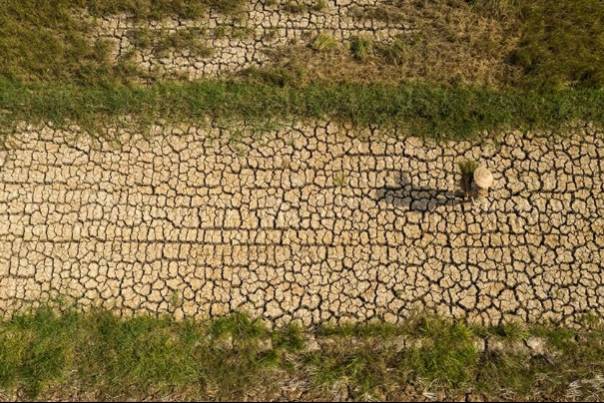According to the '2025 Economic and Social Survey of Asia and the Pacific' released on April 8 by the United Nations Economic and Social Commission for Asia and the Pacific (ESCAP) in Bangkok, Thailand, Vietnam is among the 11 countries most vulnerable to climate risks from a macroeconomic perspective.
The report highlights that while the Asia-Pacific region contributed up to 60% of global economic growth in 2024, many economies still lack the capacity to mitigate climate shocks and transition toward sustainable development.
Alongside Vietnam, the group of highly vulnerable countries includes Afghanistan, Cambodia, Iran, Kazakhstan, Laos, Mongolia, Myanmar, Nepal, Tajikistan, and Uzbekistan.
ESCAP warns that climate change is exerting significant pressure on macroeconomic factors, resulting in slow-growing enonomies, high public debt, and financial risks. Countries with weaker financial systems, limited resources, and lower governance capacity will face even greater challenges in responding to climate impacts.
 Drought is affecting agricultural production
Drought is affecting agricultural productionUN Under-Secretary-General and ESCAP Executive Secretary Armida Salsiah Alisjahbana emphasized: “Increasing global economic uncertainty and deepening climate risks are also not making it easy for the fiscal and monetary policymakers. Navigating this evolving landscape requires not only sound national policies but also coordinated regional efforts to safeguard long-term economic prospects and tackle climate change.”
Average economic growth in the developing economies in the Asia-Pacific region slowed to 4.8 per cent in 2024 from 5.2 per cent in 2023 and 5.5 per cent during the five years prior to the COVID-19 pandemic. Notably, the region's least developed countries (LDCs) are forecast to grow by only 3.7%, far below the UN Sustainable Development Goal (SDG) target of 7%.
ESCAP recommends that governments proactively upgrade their economies toward green, high value-added sectors and foster regional cooperation to strengthen resilience against intensifying climate challenges.
To ensure long-term economic prosperity, the report stresses the need for active government support in transitioning to more productive and higher value-added sectors.
Countries are encouraged to leverage their competitive strengths in green industries and value chains as new drivers of economic growth, while also promoting comprehensive regional economic cooperation to fulfill the development aspirations of both developed and developing nations.